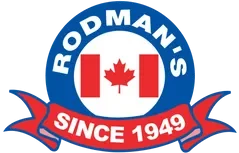Here are some of the most common questions we hear from home owners about heating and air conditioning systems; just click on a question to go directly to the response. If you don’t see your question answered, feel free to contact Rodman’s Heating & Air Conditioning; we can help you out.
How Important Is the Air Filter in My Heating and Air Conditioning System?
It’s a fact: the trapped air we breathe in our homes can be loaded with dust, pollen, plant spores, and other pollutant particles. In many cases, it’s worse than the air outside. This indoor pollution can be especially problematic if you suffer from allergies. Having an efficient filter is crucial if you want to improve indoor air quality but most importantly, the filter protects the furnace from dust, allowing it to run at peak efficiency.
After My Air Conditioner Runs for a While, Ice Forms on the Big Pipe Outside and It Stops Cooling. What Could Be the Problem?
More than likely, your air conditioner is either low on refrigerant or there is a lack of airflow. As a homeowner, turn off the unit, replace your filter and allow it to thaw out. If the problem reoccurs, call Rodman’s to schedule service on your system. We recommend annual maintenance on your equipment to keep it in peak operating condition.
What Do SEER, BTU and AFUE Mean?
SEER stands for Seasonal Energy Efficiency Rating. The SEER rating is the method of measuring the amount of electricity used by the air conditioner during operation; the higher the SEER rating, the less electricity that is used. The Canadian government’s minimum for air conditioners manufactured after 2006 is 13.0.
BTU stands for the British Thermal Unit. It is a unit of heat energy in the inch-pound unit system, which is common today in North America. The BTU is defined as the amount of heat necessary to raise the temperature of one pound of water one degree Fahrenheit from 58.5 to 59.5. A BTU is commonly used to indicate the heating and cooling capacity of a system, as well as heat losses and heat gains. For example, a 10,000 BTU window air conditioner is capable of removing 10,000 BTUs of heat per hour.
AFUE stands for Annual Fuel Utilization Efficiency. AFUE is a measurement of efficiency for furnaces, expressed in a percentage, which tells you how much fuel the gas furnace will use to heat your home, and how much will be wasted. While you used to be able to buy mid-range furnaces with an AFUE of 78 to 82 percent, today only high efficiency gas furnaces are available. This means you will be choosing a gas furnace that has an AFUE of 90 percent or higher. Replacing your old, inefficient gas furnace with a model that has a high AFUE rating can help you save up to 40 percent on your utility bill.
What Size Air Conditioner Do I Need for My House?
Sizing a residential heating, ventilation and air conditioning (HVAC) system depends on such variables as geographic location, orientation to the sun, construction details, insulation values, and window area. If you choose an air conditioner that is too small, that may lead to warmer or cooler temperatures than desired by some occupants. Oversizing the system may lead to humidity or moisture control problems in the space.
My Gas Furnace and Air Conditioner Are Both New; Do I Really Need to Have Them Cleaned? Do Water Heaters and Fireplaces Need to Be Cleaned?
Yes! Even though your heating and air conditioning system is new, it still needs to have annual maintenance performed. This will help keep the manufacturer’s warranty in effect. All HVAC equipment manufacturers state in the terms of their warranty that maintenance of heating and air conditioning equipment must be performed annually by a qualified technician. Keeping your system maintained will give you assurance that it is operating at peak efficiency and safety.
Standard water heaters do not require maintenance, but tankless models require an annual maintenance. The screen/filter should be checked periodically for debris and the unit should be flushed annually by a professional to keep the unit free of scale and lime. It is a good idea to have your gas fireplace maintained as well. This includes inspecting the combustion venting, gas pilot safety system and other parts of the fireplace to ensure that they are in optimal working order. Cleaning all of the components, including the logs and glass makes sure that they working well and improves the aesthetics of the unit.
Should I Repair or Replace Old Heating or Air Conditioning Equipment?
When you’re frustrated with the breakdown of your gas furnace or air conditioner, it can be tempting to find the least expensive “quick fix” to get on with your life in relative comfort. That “quick fix” may be the least expensive now, but it may not give you the most value, or cost you the least in the long run. Paying for repairs to an old or inefficient heating or air conditioning system often simply prolongs the inevitable. It’s almost like putting a bandage on a serious injury. An older HVAC system that breaks down once is likely to break down again and again. That means more emergency heating and air conditioning service calls or, worse yet, the risk of damage to your home or to other components of your HVAC system.
There’s also an ongoing energy cost factor to consider. Restoring your old heating or air conditioning system will only bring it back to its current level of energy efficiency. After you’ve recovered from the repair bills and the frustration of system breakdowns, you still won’t save on your energy bills. Even six-year-old air conditioners are considered inefficient by today’s energy efficiency standards, so are most furnaces built before 1980. You could save up to 60 percent on your energy bills with new, high-efficiency equipment. Therefore, installing a new heating and air conditioning system can actually pay for itself in energy savings within a relatively short time.
Why Do I Need a Protection Plan for My Heating and Air Conditioning System? What Does It Cover?
Parts and labour costs continue to go up. One service call to replace a minor part can easily cost $200 or more. With a Protection Plan for your heating and air conditioning system, you can avoid large repair bills and unbudgeted expenses.
Disclaimer: Rodman’s Heating and Air Conditioning Technical Services Staff respond to technical inquiries and have compiled answers to the above consumer frequently asked questions (FAQs) about HVAC systems. Answers to consumer FAQs are provided as a service specifically for homeowners and the general public. While every effort has been made to ensure their accuracy and reliability, they are advisory and are provided for informational purposes only; in many cases, they represent only one person’s view. They are not intended and should not be relied on as an official statement of Rodman’s Heating and Air Conditioning.

